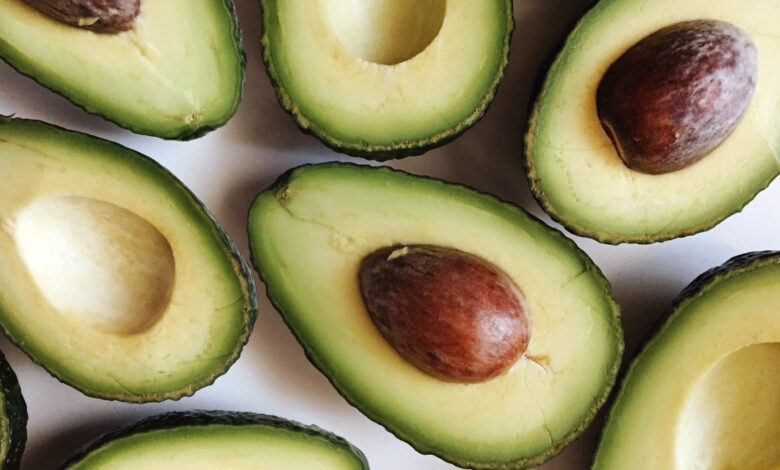Is Avocado Good For Gastritis? All You Need To Know

Gastritis is when the stomach lining gets swollen and can make you feel uncomfortable, cause pain, and create problems with digestion.
If you have gastritis, you might be curious about whether eating avocados, which are full of nutrients and very popular, is okay. We’ll take a look at how avocados might affect gastritis, talking about the good they can do and the things to be careful about.
Table of Contents
- What is Gastritis?
- Nutrition in Avocado
- Can Avocado Help with Gastritis?
- How Avocados Benefit Gastritis
- Ways to Eat Avocado When You Have Gastritis
- Important Things to Consider About Avocado and Gastritis
- Lifestyle Tips for Gastritis Management
- Conclusion
- FAQs
- Can avocado worsen gastritis symptoms?
- Are there any side effects of consuming too much avocado?
- Should I consult a doctor before adding avocado to my diet?
- Are there any alternative remedies for gastritis?
What is Gastritis?
Gastritis is the swelling of your stomach’s lining. It can happen quickly, called “acute,” or slowly over time, referred to as “chronic.”
Common signs include stomach ache, bloating, feeling sick, throwing up, and getting full fast. Anyone can get gastritis, and your eating habits, lifestyle, and health can play a role.
Nutrition in Avocado
Avocados are full of good stuff and can help improve your health.
They have healthy fats, lots of fiber, vitamins like K, C, E, and B-group, minerals like potassium, magnesium, and copper, and substances called antioxidants.
All these nutrients mean avocados can be a great part of a well-rounded diet.
Can Avocado Help with Gastritis?
Even though there’s not a study directly saying avocados help with gastritis, their nutrients suggest they might be good for those who have it.
Avocados have a lot of monounsaturated fats and fiber, which are important for keeping your digestive system in good shape.
The fats in avocados can help lessen swelling in the body, even in the stomach lining.
The fiber in avocados is good for regular bowel habits, which helps maintain a healthy gut. A good digestive system can make gastritis easier to handle.
How Avocados Benefit Gastritis
Adding avocados to what you eat can offer benefits for those with gastritis:
- Fighting Inflammation: Avocado has fats that can reduce inflammation, which might help with the swelling in the stomach from gastritis.
- Lots of Fiber: They’re a solid source of fiber, which helps with digestion and prevents getting constipated, a common issue for people with gastritis.
- Essential Nutrients: Avocados come packed with vitamins and minerals that support the health of your body and immune system, aiding in healing.
Ways to Eat Avocado When You Have Gastritis
For the good effects of avocados on gastritis, try these ideas:
- Eat Them Fresh: You can eat ripe avocados by themselves, or add them to salads, sandwiches, or meals wrapped in tortillas.
- Avocado Smoothies: Mix avocado with other fruits, veggies, and some almond milk or other liquids to make a tasty and healthy smoothie.
- Homemade Guacamole: Use avocados to make guacamole with lime juice, tomatoes, onions, and herbs. It’s great as a dip or a spread on snacks.
- Use Avocado Oil: Avocado oil can be used for cooking and gives a gentle flavor to your food. It can handle high heat, so you can use it for frying or baking.
Pay attention to how your body reacts and change how you eat avocados based on what feels right for you.
Important Things to Consider About Avocado and Gastritis
Avocados are usually okay to eat, but some people might be sensitive or allergic to them.
If you’re allergic or feel bad after eating avocados, stop eating them and talk to a doctor. Don’t overdo it with avocados, as they have a lot of calories, and too much could lead to weight gain.
Lifestyle Tips for Gastritis Management
Changing what you eat is just one part of dealing with gastritis. Your lifestyle matters, too. Here are some tips:
- Lowering Stress: Try to relax with things like meditation, breath exercises, or doing what you love.
- Exercise Regularly: Being active helps your digestion and can also lower stress.
- Avoid Foods That Make It Worse: Try not to have too much alcohol, caffeine, spicy meals, or acidic foods if they make your symptoms get worse.
- Drink Plenty of Water: Staying hydrated is key, so make sure you’re drinking enough water every day.
Living healthily and knowing what to eat can really help with the symptoms of gastritis.
Conclusion
Avocado might offer benefits for gastritis sufferers, thanks to its dense nutrients and properties that fight inflammation.
Adding avocado to the food you eat might help if you have gastritis.
Eating avocado won’t make gastritis go away by itself, but it can be one good food to eat along with other healthy foods. If you’re already getting medicine and making changes to your lifestyle, avocado can also help manage how you feel. Because everyone with gastritis has different experiences, choose what to eat based on what your body needs.







